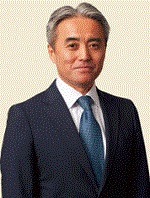The government of Japan is changing the lucrative brand-name pharmaceutical market as its population ages and requires more drugs with a push to make at least 80% of the government's drug spending on generics by 2020.
International brands are losing out to generic makers under the policies of Prime Minister Shinzo Abe who is pushing his ministers to make price cuts for branded drugs and speed up the shift to generics, according to a Bloomberg report in the Japan Times.
Japan, like China and other countries with ageing populations, sees generics as the main way to rein in ballooning healthcare costs and the shift is not only affecting international players, but also domestic companies like Tokyo-based Takeda, which announced last November it was doing a deal with Israel's Teva ($TEVA) and would offload much of its off-patent and generic products to the JV.
 |
| Takeda's Masato Iwasaki |
"Nobody imagined that this radical change could happen here," Masato Iwasaki, who heads up Takeda's domestic business unit, said in the report. "Everybody had believed the market would continue growing, but now government pressure is changing the focus."
The report also said the country's $78 billion drugs industry would see increased consolidation as companies ramp up in size to compete and international players try to take more market share in generics.
"The Takeda-Teva deal took people by surprise and is one that could be a trendsetter in gaining more acceptability for similar deals," Sanjeev Kumar, a consultant at market research firm Frost & Sullivan, said in the report. "I don't think any companies--including domestic players--can ignore this in any way."
Indian companies, which have been looking overseas for acquisitions in recent years, could benefit from the Japanese move, the report said, with companies like Sun Pharmaceutical Industries, Dr. Reddy's Laboratories and Lupin eyeing Japanese companies as acquisition targets.
Generics didn't really take off in Japan the way they have in other countries because the nation's healthcare system absorbed much of the costs for branded drugs, the report said. That is changing and Japan's government could see a drastic reduction in costs with the shift, according to Frost & Sullivan's Kumar.
- here's the report from the Japan Times